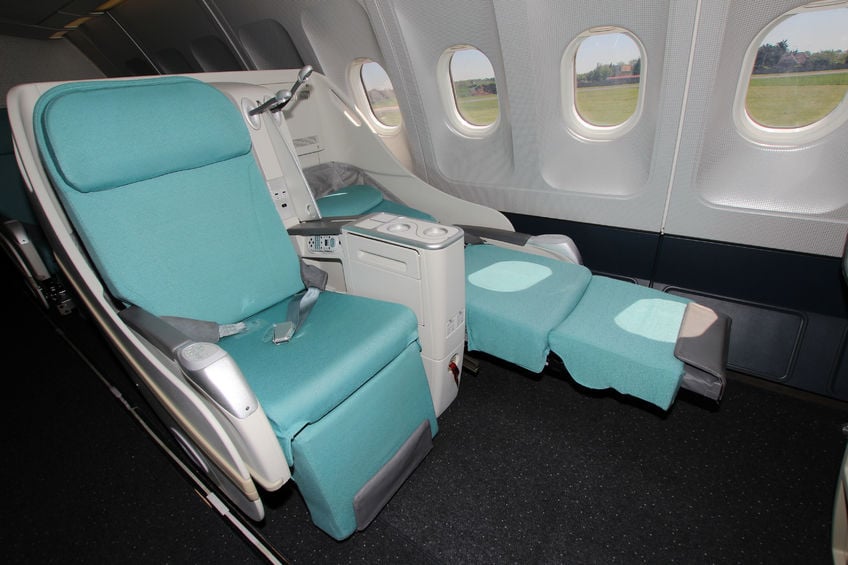Jet lag: Whether you’re a frequent flier or a one-time vacationer, it can hit you hard as you travel through different time zones. Whether you call it circadian rhythm disorder or simply jet lag, the result is real – a crushing fatigue that leaves you utterly exhausted. Day seems like night. Night seems like day. You’re disoriented, and you want nothing more than to sleep when you finally reach your destination.
Is there anything that you can do to help you avoid jet lag, or at least help your body get over it?
Yes. But first, you have to understand how jet lag works.
What is Jet Lag?
In a nutshell, jet lag is a disruption to the body’s circadian rhythm, or internal clock. Your internal clock tells you when to go to bed and when to get up. But when you travel to another time zone, your body may struggle to adjust, because it’s so used to your time zone at home. The more time zones you cross, the higher the chances you’ll have to deal with jet lag.1
Symptoms of jet lag include:
- Extreme fatigue
- Trouble concentrating
- Gastrointestinal issues, including diarrhea or constipationu2
Since your sleep patterns have been disturbed, you might also be extremely drowsy. But some people have the opposite symptoms, finding it very hard to get to sleep. You might also experience mood changes and an overall sense that you just don’t feel well.3
Thankfully, jet lag is a temporary condition that clears up on its own. However, it can take some people a few days to recover. Generally, for each time zone you cross, it will take a day to get over the effects. For some odd reason, if you travel west to east, it usually takes longer to recover.
How to Beat Jet Lag – Minimizing Your Symptoms

Hopping from one time zone to the next can certainly be exciting, especially if you’re traveling for pleasure. But you don’t want to feel lousy when you land; snoozing on the plane can help avoid this groggy feeling. Here are some things you can do to help minimize jet lag symptoms:
1. Consider melatonin.
Melatonin is a naturally occurring hormone that helps regulate our sleep, but it’s also available in supplement form. It may also be an effective way to deal with the effects of jet lag. Melatonin may help offset the effects of your body’s internal clock being disturbed. While side effects don’t usually occur with melatonin, some people experience nausea, dizziness, a loss of appetite, and headaches. Never take melatonin, or any other type of supplement, without first talking to your doctor.
2. Gradually change your sleep patterns before the trip.
You might find it easier for your body to adjust to jet lag by easing into a new sleep routine about a week or so before you leave. For example, if your trip will take you to the east, try going to bed an hour or two earlier than normal. If you’re travelling west, gradually shift your bedtime an hour or two later. Since you probably sleep better in your own bed, the more you try to adjust before you leave, the better prepared you’ll be to sleep in the new time zone.
3. Be careful when choosing your seat.

If you can afford seats in business or first class, take them. The seats are usually wider and more comfortable. You might be able to sleep better, because seats may recline further. But if your budget won’t allow for first class, you can still find a seat that will reduce your discomfort. For example, many airlines have a “premium economy” section with slightly wider seats that provide more legroom. This may make stretching out easier. Also, try to stay away from seats near the lavatories or the galley, because they’re high-traffic areas that may make it more difficult for you to get to sleep.
4. Watch your alcohol intake.
While a drink might make it easier for you to get to sleep, it won’t be high-quality sleep. Drinking alcohol can lead to dehydration. And this effect becomes even more pronounced when you’re drinking at a high altitude.6 You might get to sleep, but you’ll more than likely feel extremely groggy when you wake up. Alcohol can also exacerbate problems such as snoring, further interrupting your sleep (and the sleep of your fellow plane passengers).
5. Lighten up on mental stimulation.
You might be tempted to use your tablet, laptop, or cell phone to help kill time during your flight. But you should turn them off about an hour before you plan on getting some sleep on the plane. These devices emit blue light. The blue light from these gadgets can actually make it harder to get the rest you need.7 Try reading a magazine or newspaper instead right before trying to get some shut-eye.
Still Struggling?
If you’re a frequent traveler and you’re struggling to get over jet lag, consider seeing your doctor. Melatonin might be beneficial, but you might need other medications or therapies.
The Takeaway
Jet lag takes a toll on the body, but there are ways you can combat it. Putting a plan in place before you get on that plane can greatly increase your chances of bouncing back faster. Bon voyage!
Learn More:
A Bad Memory May Actually Be A Good Thing (here’s why)
This Simple Sitting Test Can Tell You A Lot About Your Health
Sources
1. https://www.medicalnewstoday.com/articles/165339.php
2. https://www.medicinenet.com/jet_lag/article.htm#what_are_other_symptoms_and_signs_of_jet_lag
3. https://www.nytimes.com/2017/03/10/opinion/sunday/can-sleep-deprivation-cure-depression.html
6. https://www.forbes.com/sites/andrewbender/2014/04/08/beating-jet-lag-8-ways-youre-doing-it-wrong-and-how-to-do-it-right/#1f8be4e91843
7. https://www.livescience.com/53874-blue-light-sleep.html
